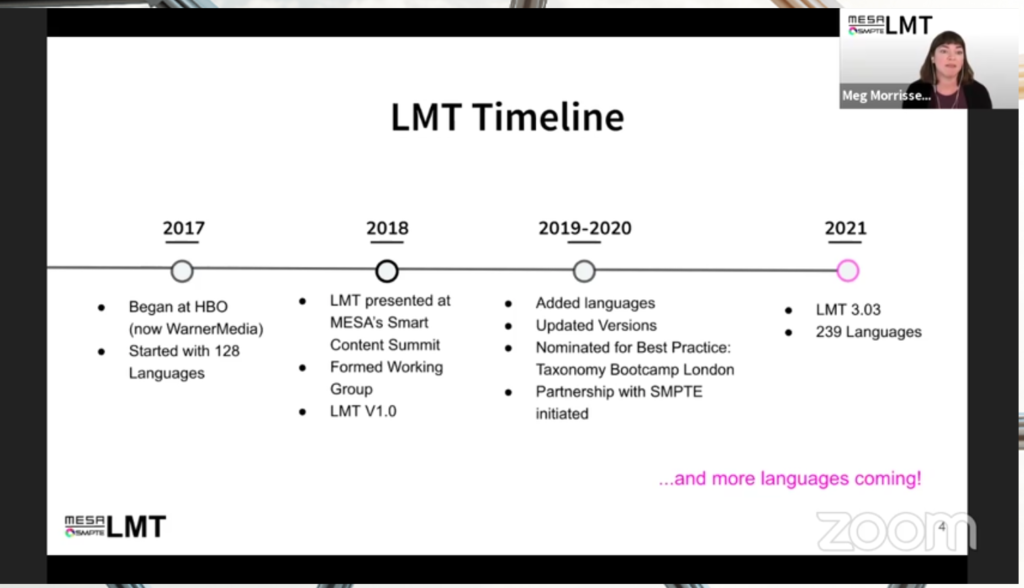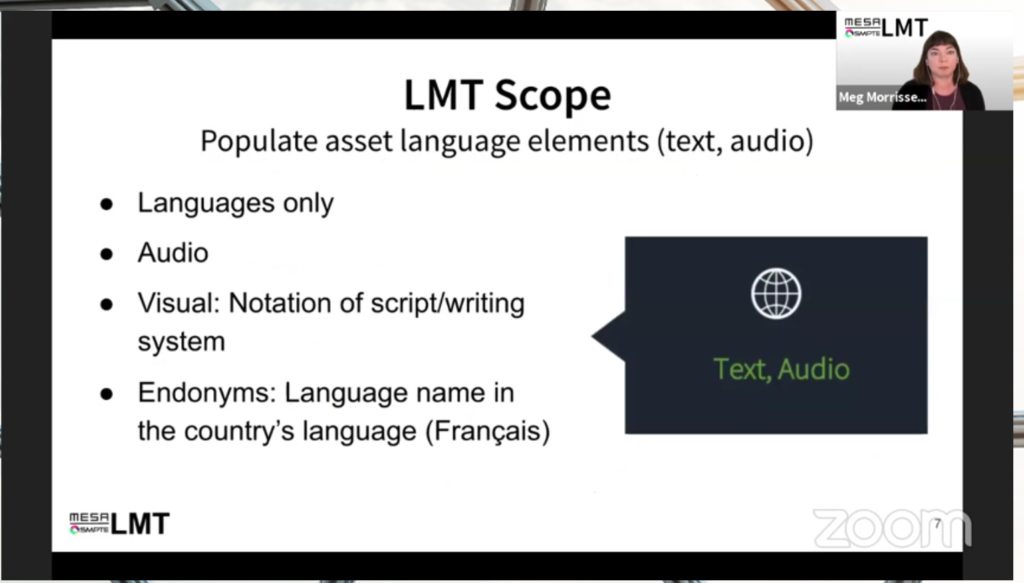Connections

LMT Chairs Tackle M&E’s ‘Tower of Babel’ at Smart Content Summit
Story Highlights
To kick off a Smart Content Summit presentation on the latest with the Language Metadata Table (LMT), Meg Morrissey, co-chair of the LMT Working Group shared a picture of the Tower of Babel, an apt “metaphor for where we are with language codes, and how LMT is changing that,” she said.
 Before LMT — which was created to provide a unified source of reference for language codes for use throughout the media and entertainment sector, offering a standardized table of language codes for implementation by M&E and other industries — the broadcast and media industry didn’t have a single, unified standard of language terminology, with each point of distribution and information exchange creating their own language code table.
Before LMT — which was created to provide a unified source of reference for language codes for use throughout the media and entertainment sector, offering a standardized table of language codes for implementation by M&E and other industries — the broadcast and media industry didn’t have a single, unified standard of language terminology, with each point of distribution and information exchange creating their own language code table.
That resulted in the M&E industry’s version of a Tower of Babel.
This need for a more flexible, granular, and modular language standard — applicable in both broad and narrow contexts — has grown from its debut with HBO and Yonah Levenson, LMT chair, in 2017 with 128 languages, to now comprising nearly 240 languages, “with a lot more on the way,” Morrissey said during the Summit presentation “Oh, The Places Your Metadata Will Go! A State of the State of LMT.”
The endeavor has resulted in adoption, engagement and collaboration among studios, networks, and service provider partners, a working group that’s helped standardized distinctions between spoken and written languages, and provided consistent codes between all involved.
“Language is not static, it’s an ongoing conversation,” Morrissey said. “We have consistent codes between content owners, distinguish between spoken and written language, make for a much cleaner experience.”
LMT use cases now run the gamut, covering audio, visual (which includes subtitles, closed captioning, and accessibility uses), content licensing, rights and acquisition, distribution and localization preferences.
 And currently there are requests for 150-plus additional languages to be included in LMT, including additional dialects out of China, along with more from the Indian subcontinent.
And currently there are requests for 150-plus additional languages to be included in LMT, including additional dialects out of China, along with more from the Indian subcontinent.
Most recently, the Society of Motion Picture and Television Engineers (SMPTE) announced it’s bringing LMT into its public review process, an early step toward SMPTE standardization.
Published as a SMPTE Public Committee Draft (CD), the vetted and approved list of language codes will be readily available for public comment, implementation, and validation.
“I’m ecstatic MESA approached SMPTE to look for ways to make LMT better,” said Bruce Devlin, SVP of standards for SMPTE. The LMT Working Group was formed under the auspices of MESA’s Smart Content Council.
 The Smart Content Summit was produced by MESA and the Smart Content Council, and is sponsored by Microsoft Azure, Whip Media Group, Richey May Technology Solutions, BeBanjo, Digital Nirvana, Softtek, 24Notion, EIDR, The Quorum and Signiant.
The Smart Content Summit was produced by MESA and the Smart Content Council, and is sponsored by Microsoft Azure, Whip Media Group, Richey May Technology Solutions, BeBanjo, Digital Nirvana, Softtek, 24Notion, EIDR, The Quorum and Signiant.









